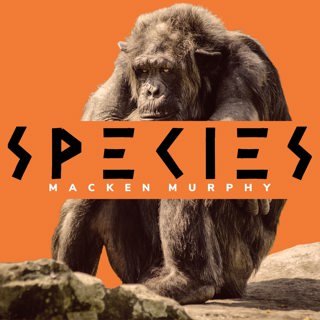
Bonus: The Biological Benefits of Monogamy
Monogamy seems completely impractical from an evolutionary perspective. If the "goal" of the survival of the fittest is to pass on your genes, how can limiting yourself to just ONE mate make any sense at all? Wouldn't playing the field be the best way to succeed? In most cases, yep. But in some select species, monogamy is the best strategy. Today we are going to talk about why monogamy evolves, and the biological benefits of monogamy under specific circumstances. Happy Valentine's Day! Bibliography: https://docs.google.com/document/d/1yNPIT2FVh9dklZiAzcUnRhUOtWm4P_BwSvprEz6oFIw/edit?usp=sharing
14 Feb 201915min

Human: Corbin Maxey, Animal Expert & TV Personality
Corbin Maxey is a nationally recognized animal expert and TV personality who has been featured on "The Tonight Show with Jay Leno," "The Martha Stewart Show," "Late Night with Seth Myers," "The Today Show," and now… Species! Hear Corbin talk about becoming famous, saving alligators from teenager's bedrooms, and almost getting killed by hippos while trying to use the bathroom in Africa, all on this special episode of Species. Find Corbin Maxey all over the internet using the links below: Website: www.corbinmaxey.com Instagram: https://www.instagram.com/corbinmaxey/ Podcast: https://corbinmaxey.com/podcast-1/ or, search "Animals to the Max" on your favorite podcast app!
12 Feb 201936min

Asian Giant Hornet
This hornet has a stinger as long as a thumbtack, and their venom dissolves flesh and kills dozens upon dozens of humans every year. As if that wasn't enough, they fly in swarms faster than you can run, and they are the largest hornets in the world. Beware. They organize into war bands and decimate other species, and their behavior is unbelievably complex. Buckle up! Bibliography: https://docs.google.com/document/d/1TTMgZezhfjDcM9I4Hl4RDL_yVs90HGe_eRd6ZoeqWGg/edit?usp=sharing
10 Feb 201922min

Harris's Hawk
This highly intelligent bird employs unbelievably complex strategies to hunt in packs, and take down evasive prey. Their social structure is extremely complex and their romantic lives will shock you. Here about the story of Rufus the security hawk's kidnapping from Wimbledon, and learn about an amazing animal on this episode of Species. Bibliography: https://docs.google.com/document/d/1jqsTGgzP_e-2XBy7QkzcsFJN2JSt6IgP0wZXPG591Oo/edit?usp=sharing Support Species: SpeciesPodcast.com/Donate
3 Feb 201924min

Dusky Gopher Frog
This tiny frog nearly cost timber farmers $30 million and then became the center of a Supreme Court case. Is the Supreme Court too powerful? Why does this frog cover their eyes when they're scared? What is a species, and what does "critical habitat" mean? Find out all on this episode of Species. Bibliography: https://docs.google.com/document/d/10mBi8uYMlwbJ1rjD30sf5xM1pZWmaQ2xK1c6YIXMbbM/edit?usp=sharing
27 Jan 201917min

Bonus: Are animals... people?
While it may seem weird to call a nonhuman animal a "person," Argentina has done just that - in their country, chimpanzees and orangutans enjoy the benefits of legal personhood. In America we like to think of "human" and "person" as equivalent terms, but that is demonstrably not the case; at least not legally. So... Should other animals be considered people? Vote: https://twitter.com/SpeciesPodcast/status/1088911107224416257 Bibliography: https://docs.google.com/document/d/1PtGd9rO9G943JDw2e01PlEHlLek0fj6JakkTuYwo9Ao/edit?usp=sharing
25 Jan 201913min

Horse
How did we domesticate horses? Is there such thing as a wild horse? Who would win in a marathon, a horse or a human? How can I become a better inventor than Elon Musk? Find out some insanely fun facts about horses and get the answers to all these questions on this episode of Species. Bibliography: https://docs.google.com/document/d/16ksNcJ5CbL4pCuGppq7gC8HYRRVU29Q28hr03l3G-QM/edit?usp=sharing
20 Jan 201924min

Side-Blotched Lizard
"Rock-paper-scissors" is an old game, and these lizards have been playing it for way longer than us. Just a different version, with higher stakes. This is a game about life and death. Learn about why lefties are better at fighting, frequency-dependent selection, and quality vs. quantity all on this episode of species. Bibliography: https://docs.google.com/document/d/1EkGLivXgxNnT9RTc3XICcsHHRUCxMwc-eOvDiSDJYSc/edit?usp=sharing
13 Jan 201918min




















